Sir John Daniel is a world-renowned expert in distance learning.
Over a 50-year career, his contribution to advanced education has earned him international honours, including the Ordre des Palmes Académiques from France, the Knight Bachelor from the United Kingdom — thus the "sir" in front of his name — and in 2013 he became an officer of the Order of Canada.
And so given his status as an icon of distance learning, he doesn’t mince words when he talks about being unceremoniously dumped last week from Athabasca University’s board of governors by Alberta Advanced Education Minister Demetrios Nicolaides.
“It is a sort of Putin approach. If you don't get what you want, you escalate and push harder, when that might not be the most sensible thing to do,” Daniel said in a phone interview from his home in Vancouver.
Like three other members of Athabasca’s board, Daniel officially learned he had been sacked not from the minister but when he saw the order in council rescinding his appointment.
In May, Nicolaides fired board chair Nancy Laird and replaced her with Byron Nelson, a Calgary lawyer. Nelson ran unsuccessfully against Nicolaides for the United Conservative Party nomination in Calgary-Bow.
The firing last week of the four members, including Andrew Ko, a world-recognized expert in distance-learning technology, follows the recent resignation of three other board members. Nicolaides immediately replaced them with seven handpicked members to restock the 17-member board.
“I'm guessing we were seen as inconvenient people whose main commitment was to the success and future of the university and not to rural development in Alberta,” Daniel said.
Through this wholesale razing and subsequent stacking of the board, Nicolaides is strengthened in his ability to achieve his stated goal of forcing the relocation of 65 per cent of the university’s staff to the town of 2,800, about 150 kilometres north of Edmonton.
That is about 500 employees, including senior executives, and their spouses and children, who are expected to move to the town within two years to bolster the region’s economic development. (Nicolaides subsequently claimed the 500-employee number was only a suggestion, an opening position in negotiations with the university.)
University president Peter Scott has argued it’s not the school’s role to act as an economic driver for the town. But Nicolaides has threatened to cut off the university’s $3.4 million monthly grant if the board of governors doesn’t produce an implementation plan to meet his relocation directive.
Board of governors pushes back
Daniel said the board met before a Sept. 30 deadline imposed by Nicolaides to accede to his directive.
Instead, Daniel said, the board “sent him a letter saying, ‘We're not going to do that. But we have solid proposals in place for how we're going to increase our contribution to the town and the region.’”
Nicolaides did not respond to a Tyee interview request. But he told other media outlets last week he cleaned house to make the board get on with forcing the implementation of his decree.
“We haven’t, to date, received detailed strategies or concrete commitments that work is being undertaken to achieve those goals,” Nicolaides told Global News.
“And so we are electing to place some more individuals on the board who have strong, really deep connections to the town and the region to be able to offer more insight to help the executive team deliver on the government’s directives.”
Daniel said the minister’s board cleansing makes even less sense given that the board had produced a workable solution that could satisfy the economic development objectives of the town and Nicolaides.
He said Peter Scott and his executive team had recently met with the town about a proposal to establish a research centre for boreal forests and water in the university’s under-utilized Athabasca Research Centre.
“They seem to be headed in the direction, as proposed by the university, to create a research hub for northern Alberta in Athabasca and to generally up the contribution to the local economy in that way, rather than the silly idea of moving all the staff,” Daniel said.
Mayor Robert Balay, in an interview, agreed the proposal had “real potential” and “was quite exciting.
“If they can find a way to use the ARC building so that it benefits the university, the province, the country, the community, then I think it's a worthwhile initiative,” he said, adding however, that he still wanted other university administrative staff located in the town.
Minister approved board’s near-virtual university plan
Daniel and other informed observers are baffled that Nicolaides would employ what Daniel called the “nuclear option” just as now-former premier Jason Kenney was limping to the end of his foreshortened reign.
Kenney stepped down after receiving only 51.4 per cent support from UCP members in a review of his leadership. The party recently elected Danielle Smith as its new leader with 53.7 per cent support.
Government sources have told The Tyee that Nicolaides was simply doing Kenney’s bidding through his repeated attempts to force the recalcitrant board to implement a directive that Scott said could threaten the university’s survival.
Scott declined an interview request. But in a previous interview he said when he discussed the university’s plan of shifting to almost entirely virtual learning with Nicolaides in January, there was no mention of changing that mandate.
The university is Canada’s largest online post-secondary institution, with all of its programs and courses specifically created for distance learning. It has more than 33,000 students in Alberta and another 10,000 in Canada and around the world.
The vast majority of its staff have worked remotely for years, and during the pandemic, even more worked from home, a trend that other post-secondary institutions around the world are embracing.
Town lobbies for more university staff
For the past year and more, a group from Athabasca had been lobbying to move more jobs back to the town. They hired well-connected lobbyist Hal Danchilla, who has publicly stated he was a campaign strategist and advisor to Kenney.
In March, Kenney and Nicolaides held a town hall meeting in Athabasca. No one from the university’s executive or board of governors was invited to the meeting, which was widely viewed in the town as a campaign event for Kenney as he stumped to gain support and sell memberships for his ultimately unsuccessful leadership vote.
At the meeting, Nicolaides expressed “non-confidence” in the board’s governance and didn’t push back when audience members slagged senior university executives.
In the months that followed, Nicolaides issued several ultimatums to get moving on his directive that Scott and the board not only ignored, but publicly dismissed.
As reported by The Tyee in August, an expert in rural planning, as well as senior university staff, said Nicolaides’ directive was logistically impossible to implement and would cause a mass exodus of employees and, possibly, students.
Balay said the town had never asked for, nor wanted, 500 staff and their families to be moved to the town and he conceded it would be impossible to accommodate an influx of that magnitude in two years.
Daniel said he found it astounding that the government ignored the interests of more than 40,000 students “and instead acted at the behest of a small population in town that hasn't really understood what is going on and didn't ask for what the government is attempting to do.”
‘Is this really about the students?’
In a phone interview from his home near Washington, D.C., Andrew Ko said he doesn’t know why he was removed from the board but assumes it was because he didn’t support Nicolaides’ directive.
And he doesn’t understand why Nicolaides is focusing on moving staff to Athabasca when the pandemic has forced many universities to reimagine how they deliver education.
“It is changing, and some universities will survive and many won't in the future,” he said. “Because the borders are no longer as prevalent in your traditional way of teaching and learning. And universities right now are trying to reinvent themselves to become fiscally viable, as well as impactful to their learners.”
Athabasca University was in serious financial trouble a few years ago. The plan to go nearly completely virtual sprung, in part, from the necessity to survive.
Ko said that even before he joined the board, he was impressed by the vision of the university’s leadership and the dedication of its staff.
“What was most impressive for me at Athabasca, even in the short term that I have spent with the staff, is that the people, the faculty, really cared, and I don't always get that at the hundreds of universities I have visited.
“And they are very open to try to reinvent themselves, to progress,” he said.
Ko has worked in many places around the world, interacting with many ministers, premiers, even presidents. He is diplomatic about Nicolaides’ attempt to force the university to turn back the clock to a bricks and mortar campus.
“All I would say is, ‘Is this really about the students?’ That is what the real core of the university's mission is — or was.
‘Will the students get a better deal out of all this because of the decisions that were made?’”
Daniel said Nicolaides has mishandled this situation so badly that “perhaps he may not survive the change of government and then maybe [the new premier] will look at this and say, ‘Look, we need to calm this down and let the university get on with its job.’”
Sources close to Premier Danielle Smith say she has not yet had the time to consider the matter, but she will be briefed on it.
If you have information for this story, or information for another story, Alberta-based reporter Charles Rusnell can be contacted in confidence at [email protected]. ![]()
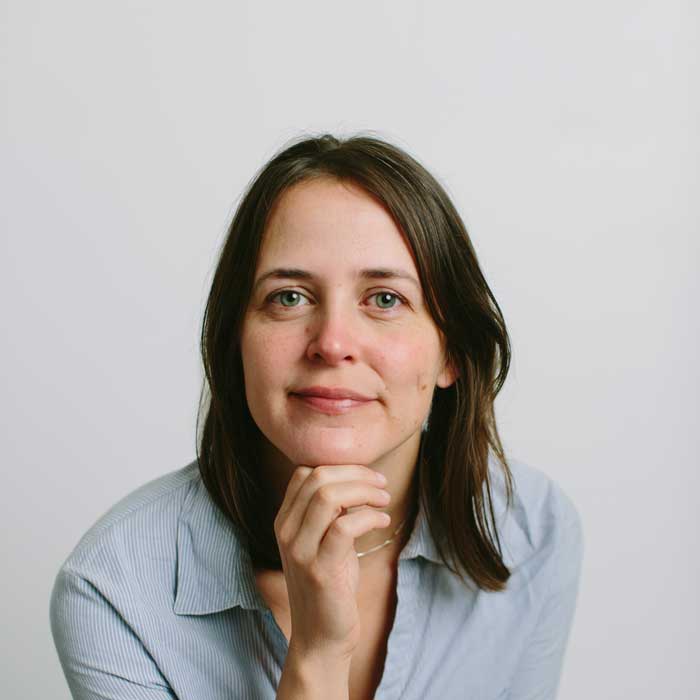

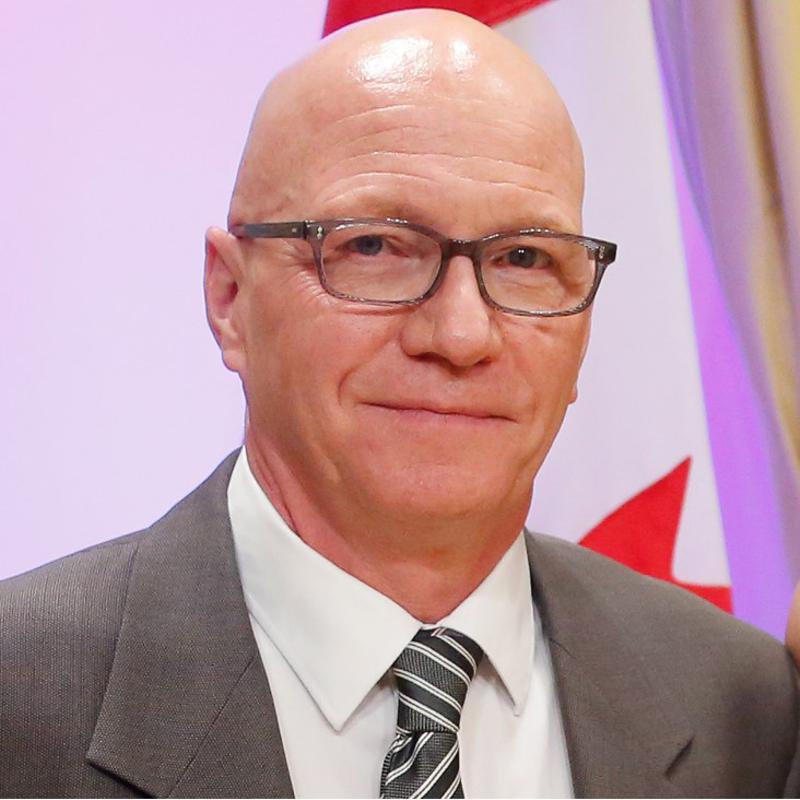

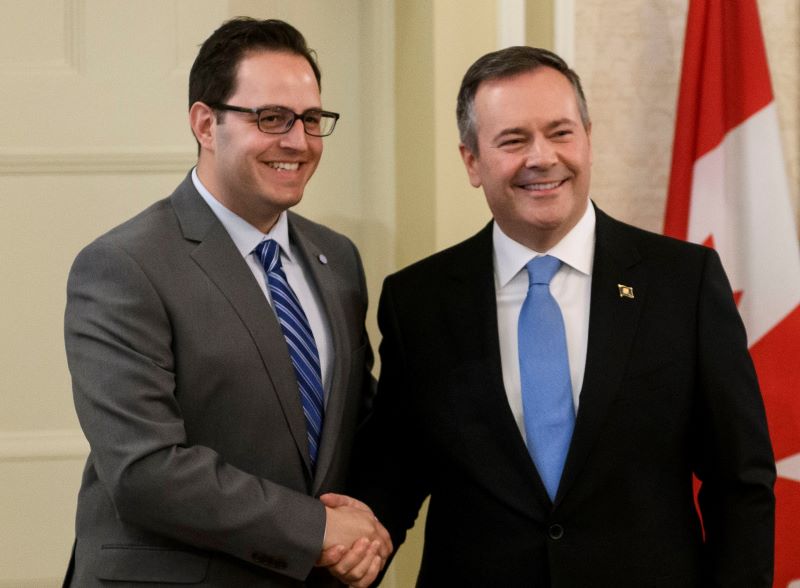
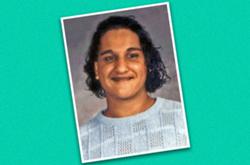
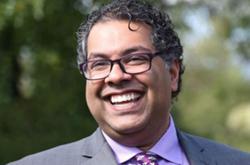




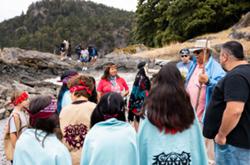
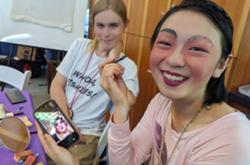
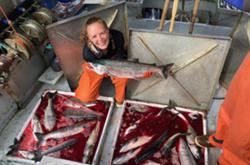

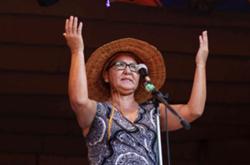
Tyee Commenting Guidelines
Comments that violate guidelines risk being deleted, and violations may result in a temporary or permanent user ban. Maintain the spirit of good conversation to stay in the discussion.
*Please note The Tyee is not a forum for spreading misinformation about COVID-19, denying its existence or minimizing its risk to public health.
Do:
Do not: